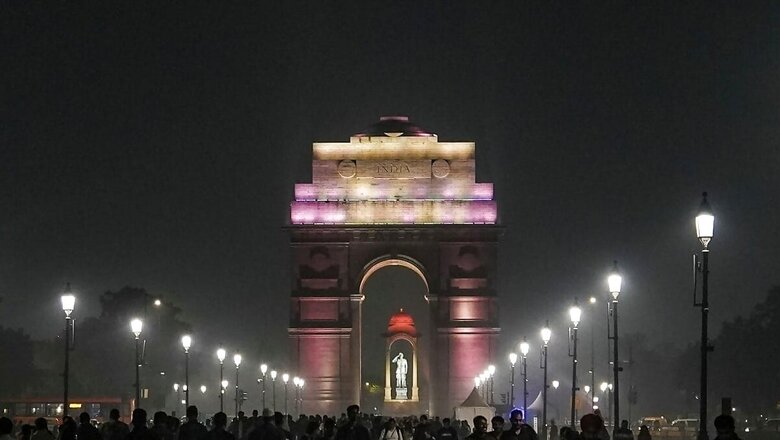
views
With the minimum temperature in most parts of northwest and central India set to plummet by two to three degrees, during the next three days, the India Meteorological Department (IMD) implied that the winter season has officially crept in. The weather department also predicted rainfall in Delhi, Punjab, Haryana, Uttar Pradesh, Bihar, and Jharkhand on Tuesday.
The national capital and its suburbs received unseasonal rain on Monday evening. air quality in Delhi and its surrounding areas improved marginally due to showers and favorable wind speed under the influence of a western disturbance affecting northwest India.
Delhi Safdarjung Observatory recorded 7.2 mm of rainfall till 8:30 pm on Monday. The wind speed also improved to 20 kilometers per hour, aiding the dispersion of pollutants, an IMD official said.
Delhi Sees Marginal Improvement in AQI
Delhi’s air quality index (AQI) stood at 365 at 8 am on Tuesday, improving from 395 at 4 pm on Monday. The AQI at any given time is the average of readings taken in the last 24 hours.
An AQI between zero and 50 is considered ‘good’, 51 and 100 ‘satisfactory’, 101 and 200 ‘moderate’, 201 and 300 ‘poor’, 301 and 400 ‘very poor’, 401 and 450 ‘severe’ and above 450 ‘severe-plus’.
10 Severe Air Quality Days This November
Earlier on Monday, a thick layer of smog blanketed Delhi, reducing visibility to just 600 metres at the Safdarjung Observatory. The visibility was 800 metres at the Indira Gandhi International Airport.
The national capital has recorded 10 severe air quality days this November so far.
The city recorded just three severe air quality days in November last year, while it experienced 12 such days in 2021, the maximum in the month since the Central Pollution Control Board (CPCB) began monitoring.
There were nine such days in November 2020, seven in 2019; five in 2018; seven in 2017; 10 in 2016, and six in 2015, according to CPCB.
Govt Working To Reduce Pollution
According to a joint project by the Delhi government and the Indian Institute of Technology-Kanpur, biomass burning was the top reason for Delhi’s foul air, contributing 31 to 51 per cent to the capital’s air pollution in the last few days.
Delhi Environment Minister Gopal Rai has directed agencies and departments concerned to ensure strict implementation of curbs on polluting vehicles and check the increasing incidents of biomass burning.




















Comments
0 comment